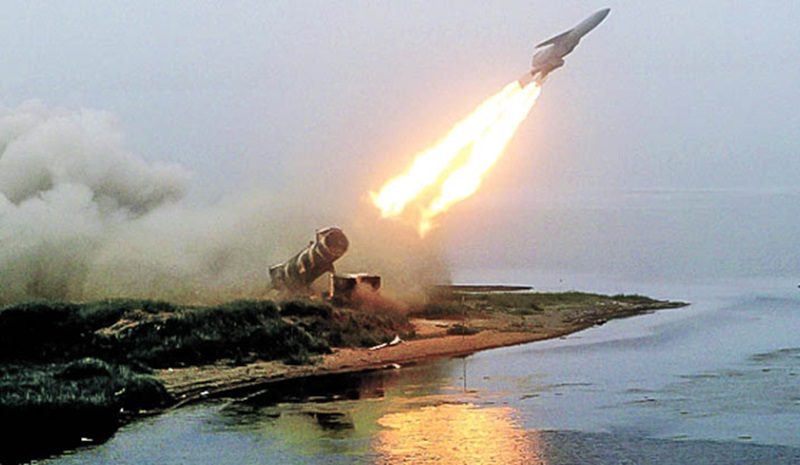Russia is considering deploying medium- and short-range missiles to Asia in response to possible U.S. missile redeployments, Moscow’s deputy foreign minister said Monday, sparking concerns that North Korea could emerge as a potential host for Russian weapons as the two states grow closer.
“The appearance of such U.S. systems in any region of the world will determine our next steps, including in the field of organizing a military and military-technical response,” Russian Deputy Foreign Minister Sergey Ryabkov told reporters Monday when asked whether Russia was considering the possibility of deploying medium-range and short-range missiles in Asia.
Ryabkov emphasized that Russia’s newly developed Oreshnik medium-range ballistic missile, used for the first time against Ukraine’s city of Dnipro on Nov. 21, is not restricted under current international treaties. The missile features multiple independently targetable reentry vehicle (MIRV) technology, which North Korea has yet to develop.

The statement follows reports that the United States is considering deploying missiles to Japan’s southwestern islands and the Philippines in preparation for a potential conflict between China and Taiwan.
While Belarus remains the most likely location for additional Russian missile deployments as the country already hosts Russian tactical nuclear weapons, experts do not rule out North Korea as a potential host.
During a July meeting of Russia’s Security Council, President Vladimir Putin called for the resumption of intermediate-range missile production and hinted at a possible deployment in Asia following U.S. actions in Europe and Asia.
“Although Russia did not directly refer to North Korea, Moscow’s mention of Asia could serve as a symbolic and psychological gesture to demonstrate the extent of its partnership with Pyongyang and to pressure Seoul and Washington,” said Kim Young-jun, a professor at Korea National Defense University.
If Russia deploys nuclear-capable missiles to North Korea, it would significantly alter the security dynamics of the Korean Peninsula and the broader Indo-Pacific region. For South Korea, this would mean facing dual nuclear threats from both North Korea’s illicit arsenal and Russia’s internationally recognized nuclear capabilities.
![North Korean leader Kim Jong-un, right, and Russian President Vladimir Putin sign joint documents during a ceremony at the Kumsusan State Guest House in Pyongyang on June 19. [YONHAP]](https://koreajoongangdaily.joins.com/data/photo/2024/11/26/e5b8e6cf-f7eb-4db0-b11a-37ddd0cb7dfc.jpg)
Such a scenario could undermine the South Korea-U.S. extended deterrence framework, which is designed to counter North Korea’s nuclear ambitions.
However, in a March interview, Putin downplayed the possibility of directly supplying nuclear weapons to Pyongyang, stating that North Korea has its “own nuclear umbrella.”
“Russia’s message is another form of rhetoric aimed at escalating nuclear threats,” said Hyun Seung-soo, deputy director of the Korea Institute for National Unification. “The timing strongly suggests that the primary goal is to deter South Korea from providing lethal weapons to Ukraine.”
Ryabkov’s comments coincided with a meeting between South Korean Foreign Minister Cho Tae-yul and Ukrainian Foreign Minister Andrii Sybiha at the G7 Foreign Ministers’ summit in Fiuggi, Italy, on Monday.
During the meeting, Cho emphasized that South Korea would implement “effective measures in stages” to address threats posed by North Korea-Russia military cooperation. Sybiha expressed optimism that Ukraine’s special envoy would visit South Korea soon to continue discussions.
Ukraine reportedly plans to send Defense Minister Rustem Umerov to South Korea as a special envoy. Cho welcomed the initiative, expressing hope for meaningful consultations during the visit.
Russia is deploying North Korean troops to bolster its military efforts in Ukraine to reclaim occupied territories in Kursk.
BY LEE YOO-JEONG, PARK HYUN-JU, SEO JI-EUN [seo.jieun1@joongang.co.kr]





